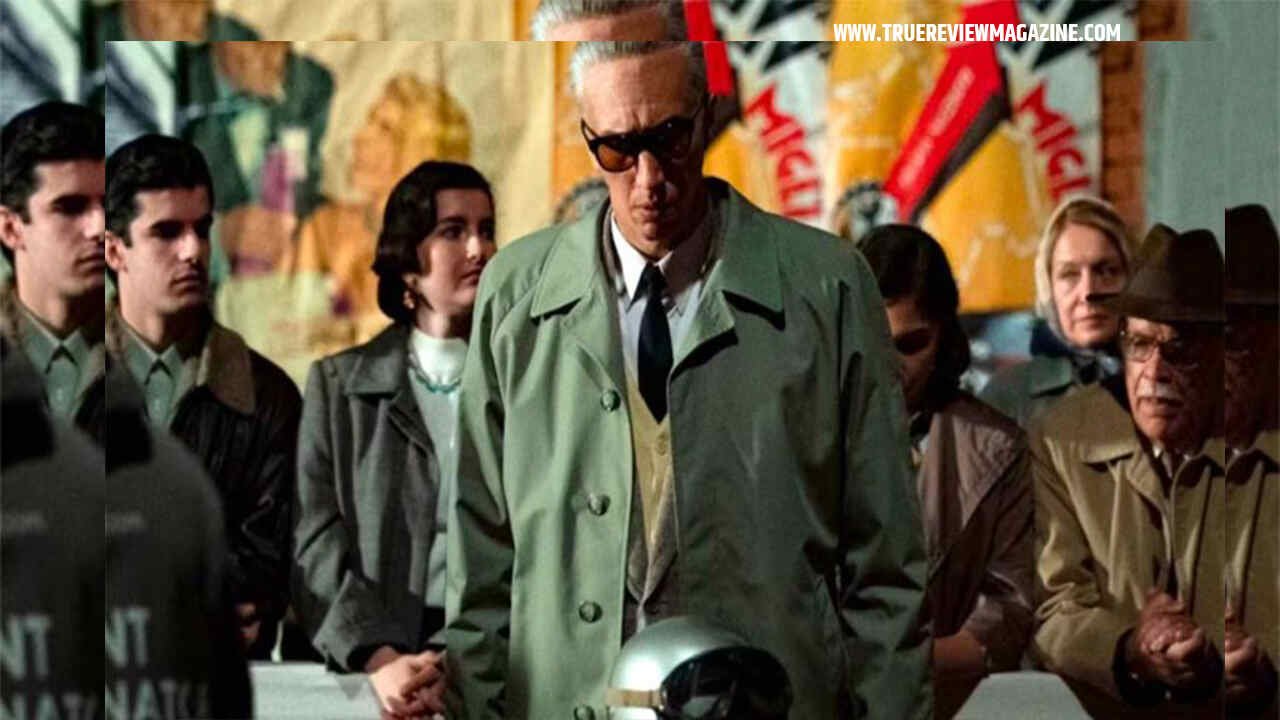In Michael Mann’s latest cinematic endeavor, “Ferrari,” actor Adam Driver takes on a role that seems tailor-made for his talents. Premiering at the Venice Film Festival, this film offers a departure from the glitzy extravagance of Driver’s previous Italian-themed film, “House of Gucci,” directed by Ridley Scott. “Ferrari” is a different beast altogether—a moody and introspective piece that delves into the complexities of pride and relentless ambition, all set against the backdrop of a critical moment in Enzo Ferrari’s life.
The story unfolds in 1957, with Enzo Ferrari, portrayed convincingly by Driver, in his late 50s and facing the potential loss of his company. His relentless focus on racing leaves little room for attention to the commercial side of the business. Ferrari is grappling not only with the pressures of the industry but also with the recent loss of his son, Dino, who succumbed to muscular dystrophy in his 20s. Driver’s portrayal, aided by subtle makeup and hairstyling, effectively immerses the audience in this period and storyline.
“Ferrari” is a tale divided into two compelling threads. On one hand, it captures Ferrari’s unwavering determination to secure victory for one of his cars in the grueling Mille Miglia road race, hoping to give his company the boost it desperately needs. On the other hand, the film delves into his complicated personal life, which includes a hidden mistress, Lina, and a son, Piero, unbeknownst to his wife, Laura. Mann skillfully weaves these seemingly disparate elements into a poignant message: acknowledging one’s mistakes and their consequences is an essential aspect of life’s journey.

At first, some viewers might find “Ferrari” surprisingly uncharacteristic of Mann’s trademark style. The director’s customary cool and slick aesthetics are exchanged for a period-appropriate ambiance, with characters engaging in conversations that lack the usual flair. However, as the film progresses, Mann’s signature touches emerge, from engaging dialogue to exhilarating chase sequences shot with raw energy. Of course, there are the sunglasses, worn impeccably by Driver, who embodies Mann’s trademark masculine finesse, competence, and sharp edges.
Mann doesn’t neglect the film’s female characters either. Cruz and Woodley are given room to shine, with Laura displaying fiery determination in managing the company’s finances, while Lina adds a layer of complexity to the narrative. “Ferrari” strives to depict its characters as multifaceted and capable of change, much like Mann’s previous work, such as “Heat.” In this nuanced portrayal, “Ferrari” distinguishes itself by offering thoughtfulness and restraint instead of a pedal-to-the-metal approach.
While cars do race towards victory in “Ferrari,” the film is not solely a tribute to speed and adrenaline. It confronts the grim reality of tragedy head-on, with one particular crash leaving a haunting impact. Enzo Ferrari, who has endured the loss of both friends and his son, doesn’t come across as a heartless, tunnel-visioned figure. Instead, he respects that the men under his command willingly embrace the risks, and while the loss is felt, guilt is rarely in the room. Mann and Driver adeptly convey this psychology, with Driver skillfully conveying the pain beneath his stoic exterior.

Michael Mann, now 80 years old, has returned to the big screen with “Ferrari” after a hiatus that followed 2015’s “Blackhat.” While the film may be more subdued than some might expect, it’s a testament to Mann’s artistic evolution. This latest work is more contemplative and introspective, showcasing a master filmmaker unafraid to explore new styles and tones. Enzo Ferrari, a figure charged with manslaughter for an accident depicted in the film, isn’t placed on a pedestal or condemned; instead, he’s portrayed with understanding, framed by a seasoned director who knows a thing or two about crafting elegant, sophisticated narratives.
In summary
“Ferrari” marks a compelling collaboration between Michael Mann and Adam Driver, delivering a nuanced and introspective exploration of ambition, tragedy, and the complexities of human nature. While it may not be the high-octane spectacle some anticipated, it’s a thoughtful and well-crafted addition to Mann’s illustrious body of work.

Michael Mann’s latest film, ‘Ferrari,’ starring Adam Driver, has premiered at the Venice Film Festival, garnering acclaim for its moody and introspective portrayal of Enzo Ferrari’s life in 1957. Unlike its glitzy predecessor, ‘House of Gucci,’ this film explores Ferrari’s determination to secure victory in a grueling race while navigating a complicated personal life. Mann’s signature style gradually emerges, and the film’s nuanced character portrayals distinguish it as a thoughtful addition to his repertoire, focusing on ambition, tragedy, and human complexity
Also read: https://truereviewmagazine.com/










